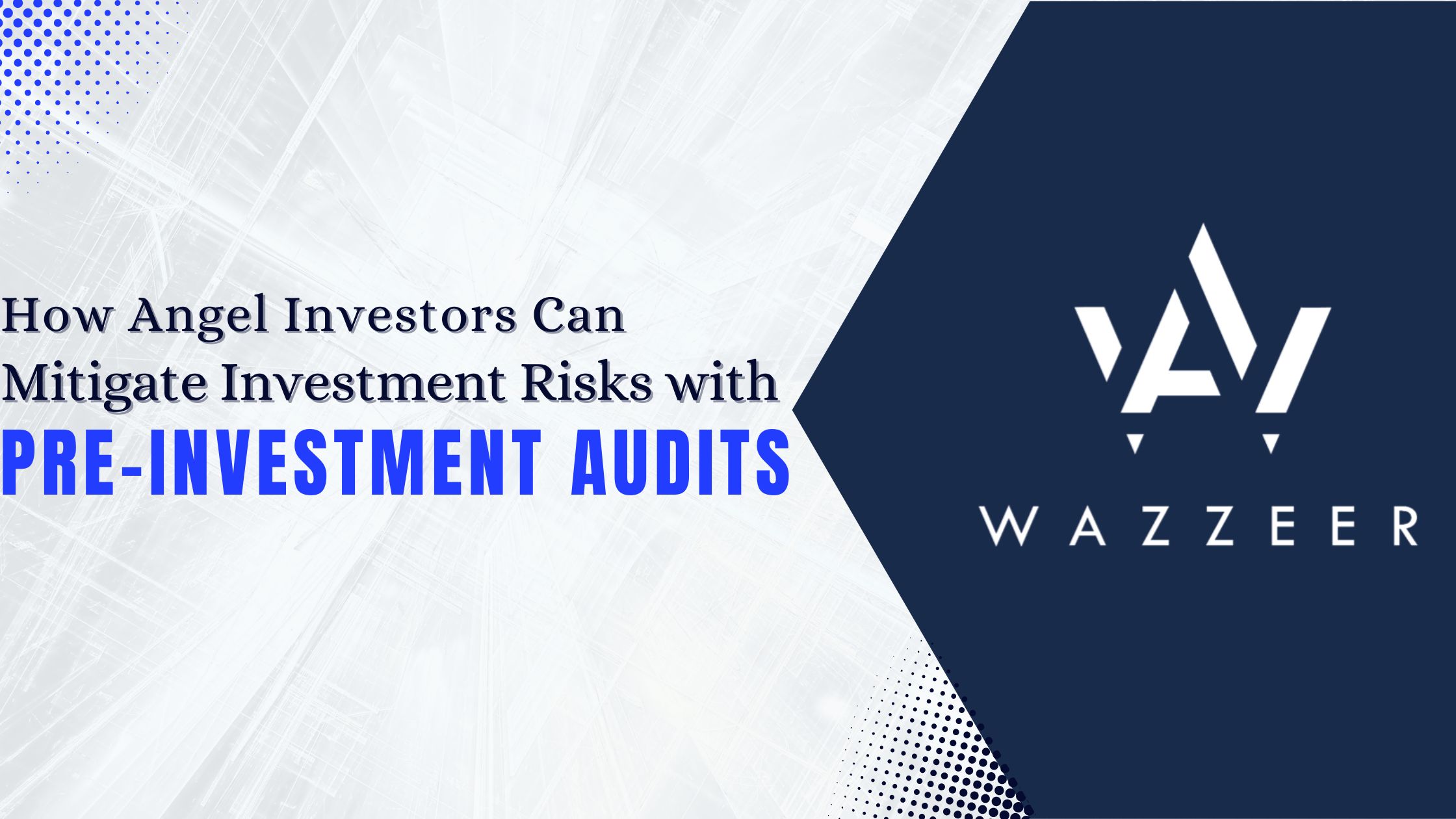In the world of angel investing, opportunities abound, but so do risks. Making informed investment decisions is crucial for success. One powerful tool in an angel investor’s arsenal is the pre-investment audit. Let’s delve into what it is, why it matters, and how it can be a game-changer in mitigating investment risks.
Understanding Pre-Investment Audits: Before diving headfirst into an investment, savvy angel investors conduct pre-investment audits. These audits are comprehensive evaluations of a potential investment opportunity, examining various aspects such as financial records, legal compliance, operational efficiency, and intellectual property protection.
Why Pre-Investment Audits Matter:
1. Risk Mitigation:
Pre-investment audits allow investors to identify and assess potential risks associated with an investment opportunity upfront. By uncovering any red flags or areas of concern early on, investors can make more informed decisions and mitigate risks effectively.
2. Due Diligence
Conducting pre-investment audits demonstrates a commitment to thorough due diligence. It helps investors gain a deeper understanding of the company’s financial health, market position, and growth prospects, enabling them to assess its true value accurately.
3. Enhanced Confidence:
By thoroughly evaluating the target company through pre-investment audits, investors gain confidence in their investment decisions. They can proceed with greater assurance, knowing that they have conducted due diligence diligently.
4. Negotiating Power:
Armed with insights from pre-investment audits, investors are better equipped to negotiate favorable terms and conditions. They can address any identified issues during negotiations, potentially improving the investment structure and maximizing returns.
How Pre-Investment Audits Work:
1. Financial Analysis:
Pre-investment audits involve a detailed examination of the target company’s financial statements, including income statements, balance sheets, and cash flow statements. This analysis helps investors assess the company’s financial health, profitability, and sustainability.
2. Legal Compliance Review:
Investors evaluate the target company’s compliance with relevant laws and regulations, including corporate governance, tax compliance, and industry-specific regulations. Any legal risks or compliance issues are identified and addressed proactively.
3. Operational Assessment:
Pre-investment audits also involve assessing the target company’s operational efficiency, management team capabilities, and scalability. Investors examine factors such as production processes, supply chain management, and customer acquisition strategies to gauge the company’s operational strength.
4. Intellectual Property Evaluation:
Intellectual property (IP) is often a valuable asset for companies, providing a competitive edge and protecting innovations. Investors assess the target company’s IP portfolio, including patents, trademarks, copyrights, and trade secrets, to ensure adequate protection and potential for future growth.
Case Study:
How Pre-Investment Audits Saved the Day Consider a hypothetical scenario where an angel investor, let’s call her Sarah, was considering investing in a promising tech startup. Before making a decision, Sarah conducted a pre-investment audit and uncovered several critical issues:
1. Financial Irregularities:
The company’s financial statements revealed inconsistencies and discrepancies, raising concerns about its financial stability and management practices.
2. Legal Risks:
The startup had pending litigation related to intellectual property infringement, posing a significant legal risk that could potentially derail its operations and finances.
3. Operational Challenges:
A deeper dive into the company’s operations highlighted inefficiencies in production processes and weak supply chain management, jeopardizing its ability to scale effectively.
4. IP Vulnerabilities:
The startup lacked adequate protection for its key innovations, leaving it vulnerable to intellectual property theft and competitive threats.
Armed with these insights from the pre-investment audit, Sarah decided to pass on the investment opportunity. Despite the initial allure of the startup’s potential, the identified risks outweighed the potential returns. By avoiding a risky investment, Sarah preserved her capital and avoided potential losses.
In the end, Pre-investment audits are invaluable tools for angel investors seeking to mitigate risks and make informed investment decisions. By conducting thorough evaluations of potential investment opportunities, investors can uncover hidden risks, assess the true value of a company, and negotiate better terms. In the unpredictable world of investing, pre-investment audits offer a strategic advantage, helping investors navigate uncertainty and unlock success.
angel investors seeking to mitigate risks and make informed investment decisions. By conducting thorough evaluations of potential investment opportunities, investors can uncover hidden risks, assess the true value of a company, and negotiate better terms. In the unpredictable world of investing, pre-investment audits offer a strategic advantage, helping investors navigate uncertainty and unlock success.
